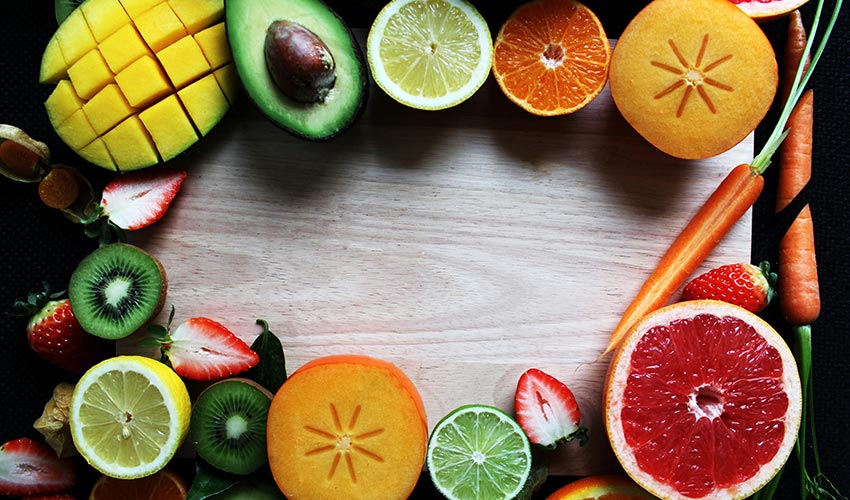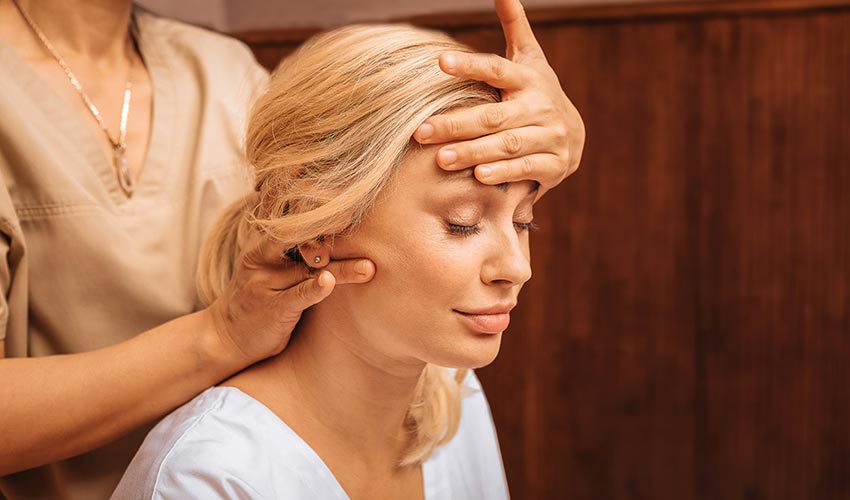Freedom from Migraines
Welcome to the world of migraines, where pain becomes an unwelcome house guest in your head. Migraines are the uninvited guests crashing the party of more than 10% of the global population. With women, outnumbering men in the migraine club. Teenagers can often experience them when puberty hits, hormones go haywire, and suddenly, migraines crash the adolescent party. Migraines can follow you into your 20s, 30s, 40s, and beyond, like a relentless stalker. But there's hope on the horizon! Your diet, stress levels, and how you tackle life's curve balls can either summon the migraine monster or send it packing.
Now, what exactly is a migraine, unlike those run-of-the-mill headaches, migraines like to keep it exclusive, preferring to torment one side of your head. Intense pounding pain, nausea, sensitivity to light and sound. Conventional methods often rely on medications, which may offer immediate relief from pain and inflammation but may not be sustainable in the long term. Now thats enough of that. Ancient Purity is about solutions! So, by now you know if you are having migraines or the odd headache. Here we are going to talk about ending migraines. In the battle against migraines, knowledge is your greatest weapon. Improving dietary and lifestyle habits not only aids in migraine management but also promotes overall well-being, minus the potential risks associated with medications. So let's roll on with the ways out.

Foods that support Good Head Feelings
Omega-3 Rich Foods: Dive into nuts, seeds, and ocean treasures like salmon or sardines to regulate blood flow and tame inflammation.
Fresh, Organic Fruits & Vegetables: Load up on these nature's bounty, packed with magnesium and other vital electrolytes essential for blood flow regulation and muscle function. They also boast antioxidants, fighting inflammation, battling toxins, and harmonising hormones.
Magnesium Powerhouses: Amp up your magnesium intake with spinach, swiss chard, pumpkin seeds, yogurt, kefir, almonds, black beans, avocado, figs, dates, bananas, and sweet potatoes.
Lean, Clean Protein: Opt for grass-fed beef, poultry, wild-caught fish, beans, and legumes to fuel your body with clean protein.
Vitamin B Rich Foods: Consider adding foods rich in vitamin B2 (riboflavin) to your diet, like organ meats, certain dairy products, green leafy veggies, beans, legumes, nuts, and seeds.
Foods to Dodge When Battling Migraines
Sometimes, steering clear of certain foods can make all the difference in managing migraine symptoms. Look through the list I've made and see what you might have had pre migraine, then try eliminating and see if you were just being triggered. Additionally, maintaining regular eating patterns, staying hydrated, moderating caffeine intake, and stabilising blood sugar levels can also aid in migraine management. Also while you're here probably look at this list and part from Eggs you're probably best eliminating all of them for other health reasons, but anyway lets solve this.
Added Sugars / Refined Grains / Conventional Dairy / Aged Cheeses / Pickled or Cured Fish / Gluten and Yeast-Rich Baked Goods / Red Wine and Alcohol (especially in excess) Chocolate (this contains phenylethylamine, which may trigger headaches) Caffeinated Drinks (moderation is key) / Eggs (if allergy is suspected) / Artificial Additives and Sweeteners (including aspartame) MSG (commonly found in packaged foods) High Sodium Foods (especially when electrolytes are low) Very Cold Foods / Nitrates in Processed Meats / Fried and Fast Foods (especially those containing MSG) Certain Beans and Legumes (like lima beans and snow peas, which contain amines)

Supplements to Help
Krill Oil: Research suggests that omega-3 supplements may reduce both the intensity and frequency of migraines.
Magnesium: Insufficient magnesium levels have been linked to migraines, making magnesium supplementation a potential aid.
Vitamin B2: Also known as riboflavin, studies indicate its potential in alleviating migraine symptoms.
5-HTP: This amino acid can bolster serotonin levels, potentially reducing the severity and frequency of pain associated with migraines.
Feverfew: This herb, containing parthenolides, is believed to counteract the dilation of blood vessels during migraines, with research supporting its efficacy.
Kudzu Extract: With a plethora of phytochemicals, studies hint at its promise in providing relief from migraines.
Melatonin: Emerging research suggests its potential as an alternative treatment for migraines.
Capsaicin Cream: Some studies indicate that topical application of capsaicin cream may offer relief from migraine symptoms.
Essential Oils to Help
Peppermint: Known for its cooling effect, peppermint oil can alleviate pain and inflammation, promoting blood flow when applied topically.
Lavender: With its calming properties, lavender oil soothes stress and anxiety, aiding in relaxation and potentially improving sleep quality.
Eucalyptus: This invigorating oil enhances blood circulation, while its cleansing properties detoxify the body, potentially offering relief from headaches.
Frankincense: Renowned for its anti-inflammatory properties, frankincense oil may help alleviate headaches while promoting immune function and hormonal balance.
Rosemary: Regulating blood flow, rosemary oil offers relief from pain, aids digestion, and soothes an upset stomach, providing a holistic approach to headache management.

Other Major Factors for
Reduce Stress
Various factors can act as triggers for migraines or exacerbate headache pain, including physical strain on the body (such as excessive exercise or sudden spikes in activity levels), inadequate sleep, and heightened emotional stress. Engaging in highly stressful situations, whether physically or mentally taxing, can disrupt blood flow and contribute to the dilation or constriction of blood vessels reaching the head. Embrace natural stress-reducing techniques to alleviate these pressures.
Embrace Mind-Body Practices
Biofeedback therapy, meditation, deep breathing exercises, guided imagery, massage therapy, and other relaxation methods that foster a connection between the body and mind can be immensely beneficial for alleviating various forms of headache pain. These practices aid in reducing muscular tension, enhancing blood circulation, regulating blood pressure, and managing the body's stress response. Employ these techniques to conduct a thorough body scan, identifying any signs of muscle tightness, particularly in the neck, jaw, or shoulders.
Prioritise Adequate Sleep
Both sleep deprivation and anxiety have the potential to trigger migraines by instigating inflammation and disrupting hormone levels. Aim for seven to nine hours of sleep each night, ensuring consistency in your sleep schedule, as excessive sleep has been associated with worsening migraines, particularly when sleep patterns are irregular.
Maintain Hormonal Balance
Research suggests that hormonal fluctuations, such as those occurring during puberty, menstruation, pregnancy, or menopause, can serve as risk factors for migraine attacks. Many young women experience their first migraines upon reaching menarche, while migraines are also common during pregnancy and menstruation. Natural methods to promote hormonal balance include adopting a healthy diet, incorporating adaptogenic herbs, engaging in moderate exercise, prioritising adequate rest, and minimising exposure to chemical toxins.
Incorporate Exercise
Regular physical activity is generally beneficial for headache prevention, as it reduces stress, balances hormones, enhances sleep quality, and mitigates inflammation. However, some individuals may find that sudden increases in activity levels exacerbate migraines, emphasizing the importance of monitoring individual responses and symptoms. Strive for a consistent exercise regimen comprising at least 30 to 60 minutes of aerobic and resistance training or yoga five days a week. It's essential to avoid exercising during a migraine episode or immediately preceding an anticipated attack.
Manage Screen Time & Light Exposure
If exposure to blue light emitted from electronic devices triggers migraines, limit screen time or consider using blue light-blocking glasses. Additionally, if sunlight exacerbates headaches, opt for sunglasses outdoors, particularly those with blue or green tints to shield your eyes from UV rays.
I know it's easy to say but don't fight migraines, I have had them. Let it play out while you try the life style changes above. Don't call yourself a Migraine Sufferer, don't keep telling people you suffer with migraines. Set out a plan, turn a new page where you feel good. Don't engage too much in what goes on until you reach that point of feeling great. You'll get there and realise the journey and the Migraines you once had helped you so much.






















